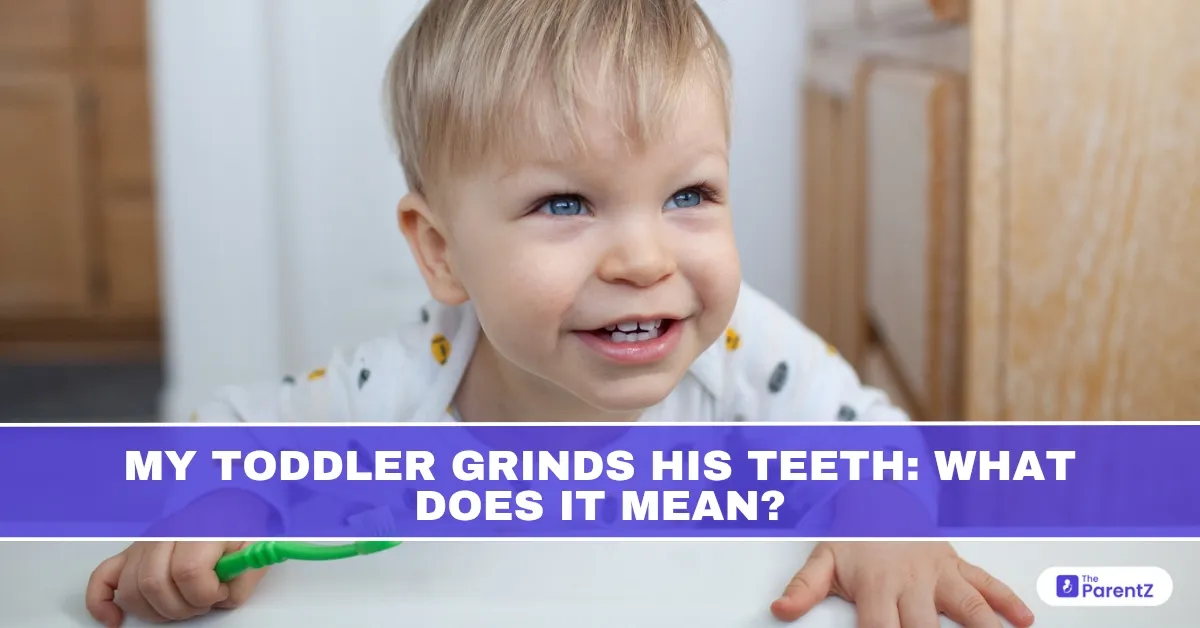Well, if you’ve ever noticed your toddler grinding their teeth—especially at night—you’re not the only one. Teeth grinding, also known as bruxism, is quite common in young children.
While it may sound a little weird to parents, in most cases, it’s harmless and something they eventually outgrow. However, it is important to understand the reasons behind it and know when to seek help.
Read this article to explore why your toddler might be grinding his teeth and what you can do about it.
Why Do Toddlers Grind Their Teeth?
There are several possible reasons why toddlers grind their teeth. Some of the most common causes include:
Teething Discomfort
As new teeth emerge, toddlers may grind to relieve the sensation of pressure or discomfort in their gums.
Jaw Development
Sometimes, bruxism is just a natural part of a child's jaw and teeth alignment process as they grow.
Stress or Anxiety
Emotional factors such as frustration, anxiety, or even excitement can trigger teeth grinding. Changes in routine, sleep disturbances, or new environments might also contribute to this habit.
Sleep-Related Habits
Did you know that some toddlers grind their teeth in response to sleep-related issues, such as breathing difficulties, snoring, or sleep apnea?
Medical Conditions or Medications
In rare cases, teeth grinding can be associated with conditions such as acid reflux or as a side effect of certain medications.
The Real Question: Is It Harmful?
For most toddlers, occasional teeth grinding isn’t usually a cause for concern. Many outgrow the habit by the time their permanent teeth start coming in. However, in some cases, persistent grinding can lead to:
- Tooth wear—Excessive grinding may wear down the enamel, making teeth more sensitive.
- Jaw pain or headaches—Some children might experience discomfort in their jaw or mild headaches.
- Disturbed sleep—If the grinding is loud and frequent, it may affect sleep quality for both the child and parents.
What Can Parents Do?
If your toddler is grinding their teeth, try these simple tips to help reduce the habit:
Monitor stress levels
If grinding is linked to stress, ensure your child has a calm bedtime routine with soothing activities like reading or gentle music.
Check for teething pain
If teething is the cause, offering a teething toy or a cold washcloth may help ease discomfort.
Improve sleep habits
A consistent bedtime routine and ensuring your child sleeps comfortably may help reduce grinding.
Consult a dentist
If the grinding persists, a pediatric dentist can check for any signs of damage or underlying issues. In some cases, they may recommend a night guard to protect the teeth.
If your toddler’s teeth grinding is accompanied by severe jaw pain, frequent headaches, difficulty sleeping, or signs of worn-down teeth, it’s best to consult a pediatric dentist or doctor.
Conclusion
Teeth grinding in toddlers is usually temporary and harmless. While it can be concerning to parents, it’s often just a phase that fades with time. If you’re unsure or notice any signs of dental damage, ensure a quick dental visit.





Be the first one to comment on this story.